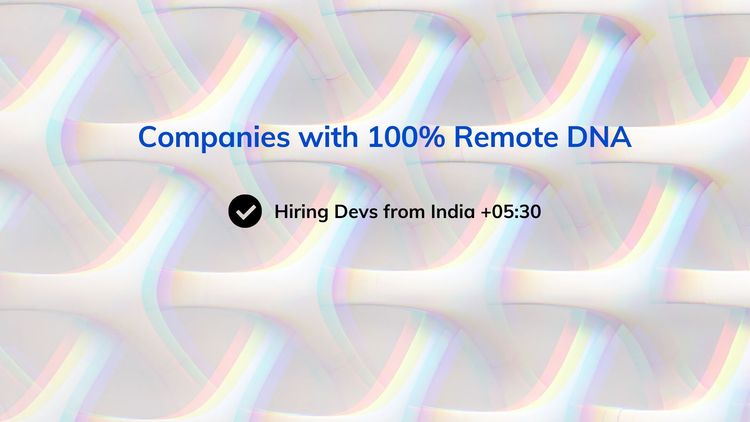Everything you need to know about ISA

A note for students, schools & investors on Income Share Agreement. An up to date research on benefits, risks, alternatives, solutions to challenges & future of ISA.
There are more and more new schools coming up to offer a flexible payment model for education called ISA(Income Share Agreement).
From the time when I started writing this article(3 months back) to now when I'm publishing my research, 20 new schools offering ISA have spawned in India alone. A complete list of schools and their comparison at the end of this article.
What is ISA?
ISA is a deferred fee payment model, conditional to employment
Means, if you get placed after the education program, you pay a cut of your salary to the school for an agreed duration. If you do not get placed, you do not need to pay.
ISA has been a trending idea in USA education for quite some time. Now EU countries and India are also seeing more and more schools opening up with ISA payment model.
Everything that "Students" need to know
So you want to get education in a specific field, let's say software engineering. Suppose, you choose a school which offers ISA; first, let's see how it is going to work
- Apply to the school
- On selection, sign the ISA
- Get the education from the school(usually 6+ months)
- Apply to companies and get interviewed
Now 2 things will happen within one year after this
A. You get a job and start getting a good salary
B. You do not get a job OR have to settle with a low-paying job
If it's A, you have to pay some percentage of your monthly income to the school for an agreed duration. Similar to EMI for loans.
If it's B, you do not need to pay anything.
Benefits of ISA for students
- Pay only if you succeed in getting a job
- Self interest of school to get you placed(they don't get paid unless you do)
- If you cannot afford education for your chosen field, this is one option to pay your school fee
Negatives for students
- ISA is an unregulated payment model, does not offer same security & features as regulated payment models do(e.g. education loan)
- Opportunity cost(most of these programs need 6+ months of dedicated full time commitment), is it worth it?
- Complex terms & conditions which differ from school to school. Also there's a lack of transparency which makes decision making a complex task e.g. exact copy of the agreement is not made available before application, usually you get to see exact agreement copy after the selection process completion.
- As all of these schools are new, there is little proof of success to verify and it is going to take a long time because of the nature of the programs(takes ~1 yr to see the outcome for just 1 batch)
- Expensive in long-term(you're going to pay a higher fee via ISA in case of success)
- If you are an experienced, motivated developer and prefer learning on your time via internet and have confidence to get a job of your preference within 6-12 months, these programs are not for you
Alternatives to ISA modeled schools for students
- Self-paced MOOCs - Lowest cost or Free, most flexible timings. e.g. Freecodecamp, Coursera, edx, etc. You can search for more on ClassCentral. I personally like Freecodecamp as it's non-profit and free.
- Formal education - High cost, high credibility. Good colleges are usually harder to get in because of their high bar on entrance.
- Traditional specialized training - Medium upfront fee, flexible timings
- Irrespective of your choice, you have alternative financial services available to you e.g. personal loans, education loans, credit card EMIs, etc.
Minimizing risks and maximizing potential as a student
- Do your research about the school and other available options. Evaluate the course, instructors, their process and reviews, etc. You can find a list of all programs offering ISA for comparison at the end of this page
- Read T&C carefully. Avoid lock-ins. Think of different scenarios such as what if you do not want to continue job after an year or want to switch your field.
- Once you have started the course, do your best to stand out
- Do not depend only on school for placements, try other networks and keep investing time in building your personal brand from the start. Actively participate in online communities such as :
- Communities for all kinds of professionals provide opportunity to network(LinkedIn, Twitter)
- Blog and community of writers provide opportunity to communicate about your personal brand(Medium, Personal Website)
- Communities for developers are a great place for collaborative learning(Github, Stackoverflow, Invide)
- Communities for startups(Hacker News, Product Hunt)
- Be very clear why you're choosing ISA modeled school over the set of best MOOCs available online. Coursera, Edx, Udemy, Pluralsight, LinkedIn Learning, etc. are popular destination for quality MOOCs. A free online bootcamp, Freecodecamp is a very good place to start for beginners in coding.
- Consider upfront payment using other financial services available to you and then compare with ISA offering
Everything that "Schools" need to know
Benefits of ISA for a school?
- Increase revenue by tapping the market which couldn't have afforded your program earlier
- Can charge more for per successful student
- Easy market entry for new entrants(lower sales friction)
Risks & challenges for schools
- ISA is unregulated and there's no out of the box solution to implement it. Which makes it a costly and a risky payment instrument to depend upon.
- Placement is a decision of external parties(employer & student). Also hiring decisions are bound to human biases. This creates variability in revenue even when program did it's job of educating very well. It's a risk that needs to be managed.
- Tracking the student's salary is an unsolved problem. Defaults in repayments is a risk that needs to be managed and requires significant investment.
- Error in judgement of student's capabilities drives the cost up
- Some students will not complete the course, that can bring the revenue prediction down
- Competition from alternative solutions is going to be more fierce. Specially from alternatives which are scalable(e.g. self-paced MOOCs)
- Long iteration cycle(6+ month for one batch to complete) results in delayed learning of behaviors & cause-effect relations
Alternative strategies to ISA for schools
- Hybrid payment - e.g. 20% upfront, 80% on success
- Merit-based or need-based highly selective ISA offers - on the same lines as scholarships work
- Infosys model
Managing risks for schools
- Build strong placement team to maintain relationships with partners, automate wherever possible
- Active financial risk management by experts, automate wherever possible
- Enhance screening capabilities, automate wherever possible
- Carefully design the course curriculum which stand out from competition(by alternative solutions such as MOOCs). The choice of field must offer higher chances of placements as well. Specialized niche courses are good options
- Involve experts, partners and maintain relationships. Because handling battle on every front, will leave you only tired. Pick that one special battle, leave the rest to others
- Collaborative learning is an important aspect of any education programs. Getting it right is important
Conclusion
ISA is not a one pill that cures everything. It is a useful tool in it's development stage. Mostly new entrants are using this tool as of now. But this trend is here to stay and only grow for the foreseeable future. It will go through disrupting changes to become a sustainable solution.
There are some clear opportunities using ISA
- Opportunity for formal education providers(colleges) and training institutes to use ISA in accessing the untapped market(talented students who cannot afford the education due to their current financial constraints). Managed well, it will bring only more revenue and credibility to the school.
- Opportunity for financial services(e.g. education loan providers) to scale education loan segment by providing solution for schools to execute ISA. These new schools having self interest in outcome(the job), this will bring in more trust and cooperation in the whole system.
- Opportunity for software companies via solutions such as ISA management, admission management, placements management, classroom management, risk predictions, etc.
Most of these schools are still figuring out their ideal target audience. But it is clear that ISA model does not suit to experienced professionals who are earning well, who prefer learning on their time and have confidence to get a job of their preference within the same time constraints as these schools(6+ months). Whom does it suit? A section of 1m+ unemployed engineering graduates and a lot more non-engineers who want to explore Software Engineering for it's lucrative payscale. Finding School <> Audience fit is going to be tricky because of long iteration cycle.
Bad news, ISA won't be a differentiating factor soon. Good news, schools running on ISA won't have to fight battles on multiple fronts because new solutions to support this new model will emerge soon.
Schools and investors will need great amount of patience before this model leads to a fruitful destiny crossing the chasms that are just awaiting around the corner. The competition will grow, quality of schools will improve as they will start creating expertise in their niche field and these improvements will be followed by consolidations.
Education companies in niche fields(such as cloudxLab for AI, upGrad for product management) have higher chances of attracting the right crowd and create massive sustainable adoption.
All in all, the future is bright but it is certainly not for the faint of heart.
Here's a list of all the schools offering ISA in software engineering domain [WIP]
For any queries or aid with research, email us at hello at invidelabs.com



Member discussion